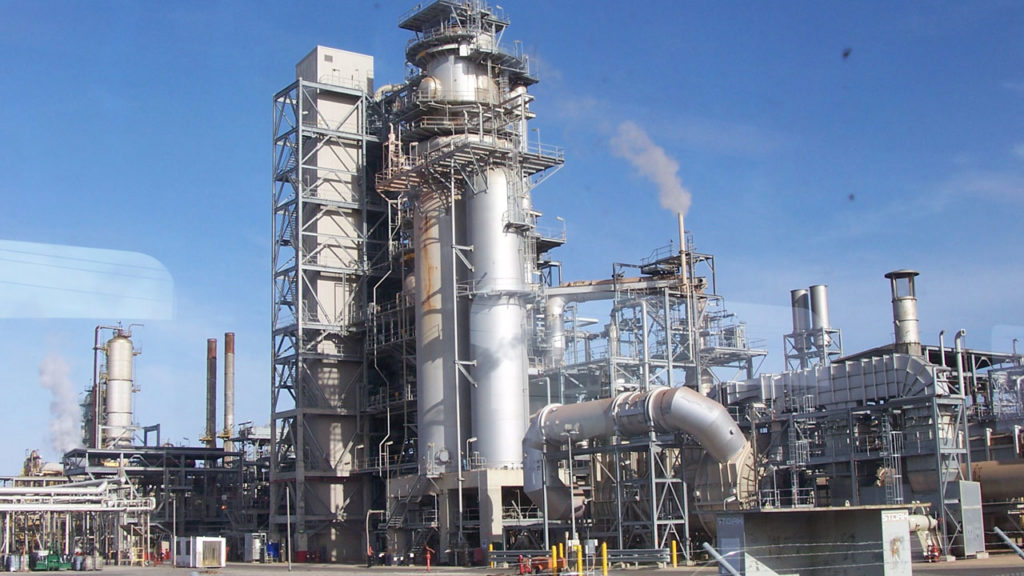The Executive Secretary, Nigerian Content Development and Monitoring Board (NCDMB), Simbi Wabote, has stated that about 400,000bpd is expected from the rehabilitation of NNPC refineries in Port Harcourt, Warri, and Kaduna using target performance of not less than 90 per cent of nameplate capacity.
Wabote at the Nigerian Continent Midstream-Downstream Oil and Gas summit in Lagos, also explained that the refining roadmap by the present administration, which includes four focus areas such as the rehabilitation of the existing four national refineries, co-location of new refineries, construction of greenfield refineries and construction of modular refineries is expected to boost the nation’s combined refining capacities of more than 1.4 million bpd in the next five years.
He said the theme of the summit tagged ‘‘Towards maximizing potentials in the Midstream and Downstream Oil & Gas Sector – A Local Content Perspective,’’ is based on its 10-year strategic roadmap to achieve 70 per cent Nigerian Content target in the oil and gas industry by the year 2027.
According to him, there is opportunity to maximize opportunities in the midstream and downstream sectors of the oil and gas industry.
He added that the employment factor in the midstream and downstream sectors of the industry is higher in number and of a longer duration when compared to that of the upstream sector.
“This provides means to absorb outputs of our Human Capacity Development programs in the form of job opportunities. The entry barrier for businesses to partake in the midstream and downstream sectors of the industry is relatively lower compared to that of the upstream sector,” he said.
He added: “There are vast business opportunities in the midstream to downstream sectors ranging from processing, transportation, storage, and distribution that could be started on a small scale and later scaled up to bigger enterprises thereby growing in-country capacities and capabilities.”
He noted that the direct social impact brought by a productive and efficient midstream and downstream sector of the oil and gas industry is another potential that needs to be maximized.
“There is a sense of pride for any citizen who has the confidence that he or she could take availability of energy sources for granted in whatever form such as electricity, fuels, gas, and others. These have direct correlation to quality of life, productivity, life expectancy, and social harmony,” he said
On modular refineries, the NCDMB boss said they are serving as a catalyst to enhance the realisation of the refining roadmap, saying that its partnership with Waltersmith resulted in the delivery of the 5,000barrels per day modular refinery in Imo State currently in operations.
“Next in view is the 2,500 barrels per day Duport Modular Refinery located in Edo State due for commissioning by this year. Others under construction are the 2,000 barrels per day Atlantic Refinery and the 12,000barrels/day Azikel Hydro-skimming Refinery both in Bayelsa state,” he added.
He also said NCDMB is in partnership with NNPC to construct a 50,000liters petroleum products terminal in Brass Island to support storage and distribution of white products in the coastal states of the country.
Also speaking, the Minister of State for Petroleum Resources, Timipre Sylva, said the Petroleum Industry Act (PIA) has introduced a governance framework for the industry with clear delineation of roles between regulation and profit-centric business units, stressing that the Act contains fiscal incentives to attract investment in gas development and local refining.
“It also provides exceptional care for host communities and future energy security through dedicated funding for renewable energy development and local content,” he said.
He said under the “Decade of Gas Initiative”, gas has been declared a transition fuel towards Nigeria’s actualisation of a net zero carbon emission.
“We must find ways to unlock the natural gas and domestic production potentials of Nigeria and drag millions of our people out of energy poverty,” he urged.
He pointed out that the government has supported critical projects such as NLNG Train 7, Ajaokuta-Kaduna-Kano (AKK) Gas Pipeline, Nigeria/Morocco Gas Pipeline, Trans Saharan Pipeline, and the National Gas Transportation Network Code.
The Authority Chief Executive, Nigerian Midstream and Downstream Petroleum Regulatory Authority (NMDPRA), represented by the Executive Director, Hydrocarbon Processing Plants, Installations and Transportation Infrastructure, NMDPRA, Francis Ogaree, called for an increased collaboration with NCDMB and continued engagement with licensees.
He also stated the need for continuous enablement of business continuity and profitability, continuous functional implementation of PIA.
SOurce: Guardian.ng

